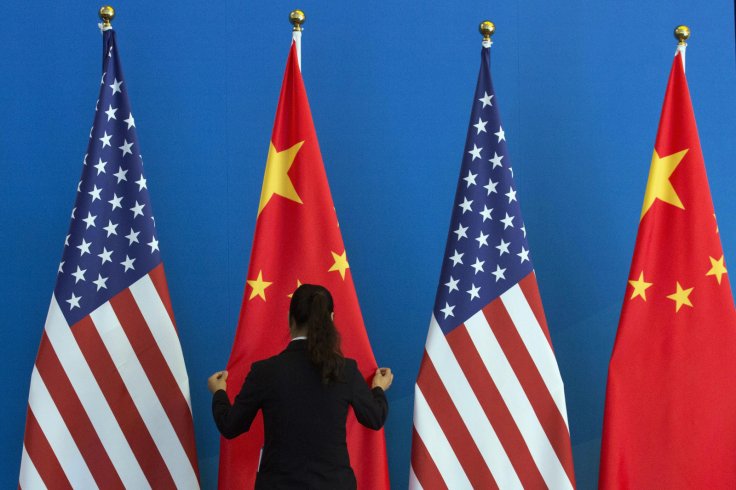
President Donald Trump on Friday downplayed a revenue warning from Apple Inc that cited slowing sales in China and said China's weakening economic growth puts the United States in a strong position as negotiators from the world's two largest economies prepare for trade talks next week.
Trump has slapped import tariffs on hundreds of billions of dollars of Chinese goods as he seeks concessions from Beijing on issues ranging from industrial subsidies to hacking, sparking retaliation by China. The measures have disrupted trade, hurt manufacturing, roiled international markets and slowed the global economy.
U.S. officials are heading to Beijing next week for the first face-to-face talks since Trump and China's President Xi Jinping in December agreed to a 90-day truce in the trade war as they sought to strike a deal.
"I think we will make a deal with China," Trump told reporters at the White House after a meeting with Democratic and Republican lawmakers about the U.S. government shutdown. "I really think they want to. I think they sort of have to."
Beijing on Friday cut bank reserve requirements for a fifth time this year amid slowing growth at home and the punishing U.S. tariffs on exports.
"China's not doing well now. And it puts us in a very strong position. We are doing very well," Trump said. "I hope we're going to make a deal with China. And if we don't, they're paying us tens of billions of dollars worth of tariffs — not the worst thing in the world."
Official data this week showed manufacturing has slowed in both China and the United States, though the U.S. Labor Department on Friday reported a surge in new jobs in December along with higher wages.
The president downplayed the effects of the economic woes on U.S. technology giant Apple Inc (AAPL.O), which this week blamed slowing iPhone sales in China for a rare reduction in its quarterly sales forecast.
When asked if he was concerned about Apple's revenue cut and share price drop, Trump said: "No, I'm not. I mean look, they've gone up a lot."
TRUMP TELLS APPLE TO BUILD AT HOME
Shares of Apple rebounded on Friday after a 10 percent nosedive on Thursday on the revenue warning. The shares closed at $148.26 on Friday, down about 5.1 percent for the week. For the 2018 full year, Apple shares fell 7 percent, though they are up about 24 percent since Trump took office in January 2017.
"They're going to be fine. Apple is a great company," Trump said, adding he had told Apple Chief Executive Officer Tim Cook to build his company's products at home in the United States, something he has harped on previously.
"Apple makes its product in China. China is the biggest beneficiary of Apple, more than us, because they build their product mostly in China," Trump said. "I want Apple to make their iPhones and all of the great things that they make in the United States. And that'll take place."
Apple's lowered revenue outlook along with a double-digit drop in earnings at commodities giant Cargill Inc [CARG.UL] on Thursday may be among the clearest warning signs yet that the trade war's effects have begun to hit U.S. companies.
A team led by Deputy U.S. Trade Representative Jeffrey Gerrish will travel to China for talks, China's commerce ministry and USTR said. That news that helped boost global markets. The talks begin on Monday.
USTR said the U.S. delegation would also include under secretaries from the U.S. Departments of Agriculture, Commerce, Energy and Treasury, as well as senior officials from those agencies and the White House.
While Trump and other officials have said talks between the two sides are progressing well, they have given few details on concessions that China has made. Some U.S. demands would require structural reform that may be unpalatable for Chinese leaders.
China would deepen reform but will not yield on issues it deems to be its core national interests, a commentary in the ruling Communist Party's official newspaper said on Wednesday.
"We know what sort of changes we need," White House economic adviser Larry Kudlow said in an interview with Fox Business on Friday. "Now, the question is can we negotiate these changes and can we do so with enforcement (and) with timetables."








